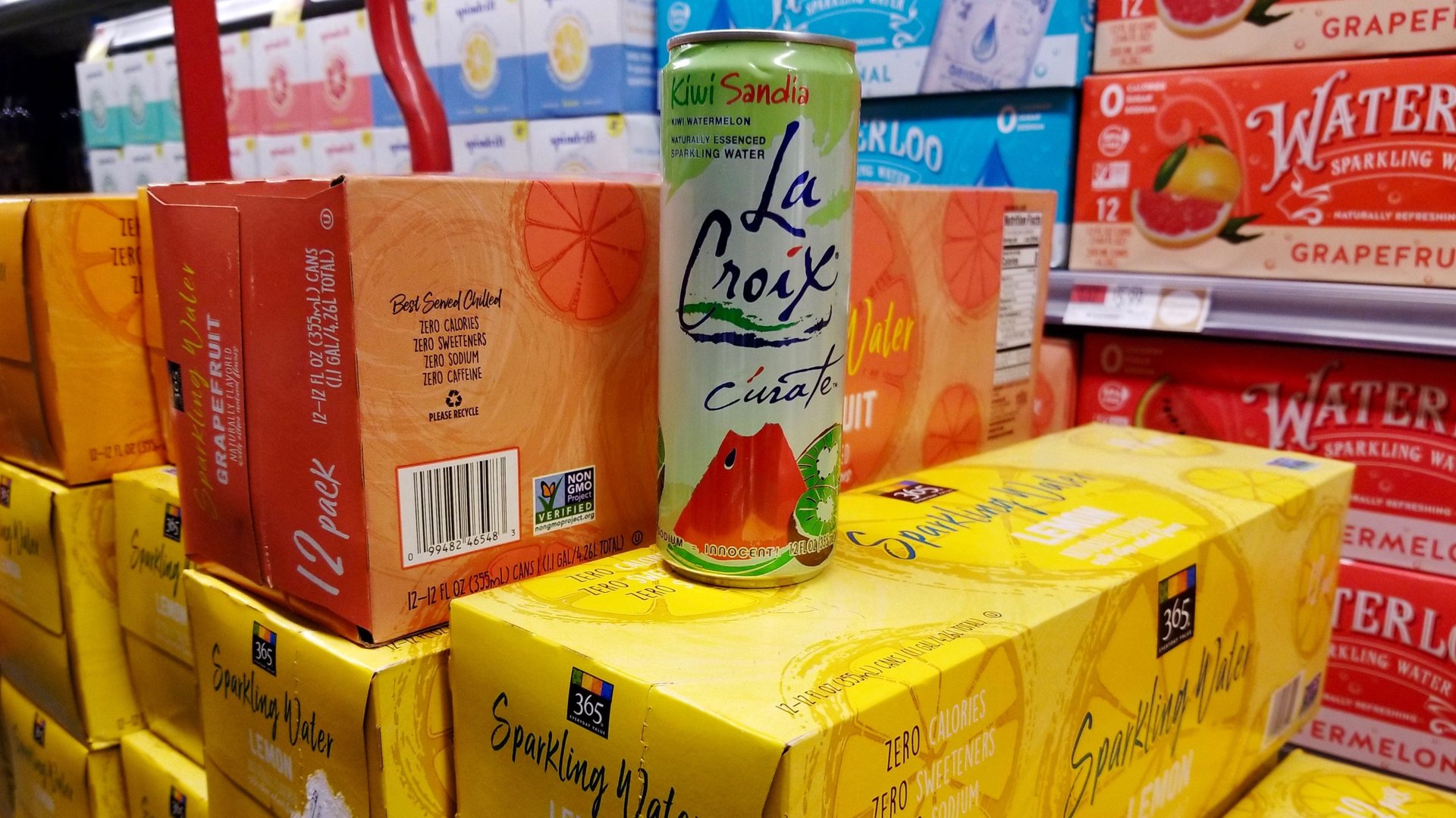Even if LaCroix does contain insecticide ingredients, that doesn’t mean its bad for you
It’s the darling of the carbonated beverage boom. Clear, lightly-flavored, and positively bubbling with refreshment.


It’s the darling of the carbonated beverage boom. Clear, lightly-flavored, and positively bubbling with refreshment.
Yum!
But it might also contain a single ingredient found in some cockroach poisons.
Boo!
At least, that’s what’s being alleged in a class-action lawsuit filed against the maker of LaCroix this week in Chicago. The seltzer brand is distinguished by its pastel-faced aluminum cans and its jaw-dropping rise in popularity during the last few years. Between 2012 and 2018, LaCroix sales in the us increased by 667%.
Oh, but the cockroach poison. Right. The recent lawsuit marks an interesting intersection between science, the food industry, and a brand of environmental activism that often blurs reality.
What’s alleged
The lawsuit claims third-party testing of LaCroix seltzer found it contained at least three chemicals—limonene, linalool propionate, and linalool—that weren’t clearly labeled on the can. The law firm that brought the suit, Beaumont Costales, alleges the company is misleading consumers by hiding the three “synthetic” items behind the wording “natural flavors” that is listed on the cans. The lawsuit further notes that linalool is an ingredient used in cockroach poison.
“The lawsuit seeks to stop LaCroix from falsely labeling and promoting its products as natural and to award damages to those individuals who purchased LaCroix under this inaccurate depiction,” the law firm said in a statement.
LaCroix fights back
LaCroix’s Fort Lauderdale-based parent company, National Beverage, has dismissed the claims of the lawsuit as without basis in fact or law.
“Natural flavors in LaCroix are derived from the natural essence oils from the named fruit used in each of the flavors. There are no sugars or artificial ingredients contained in, nor added to, those extracted flavors,” the company said in its own statement (pdf).
Clearing the air
There are two important distinctions to be made here:
1. Natural vs. Synthetic
Claiming that linalool is a synthetic ingredient isn’t entirely true. In fact, according to report prepared for (pdf) the National Institutes of Health’s National Toxicology Program, linalool is found in more than 60 different spices and is commonly used in many food and drink products. Linalool propionate is usually referred to as “linalyl propionate,” and is derived from plants including ginger, lavender, and sage. It’s commonly used as an additive for flavoring and perfumes. As for limonene, it’s a major component in the oil of citrus fruit peels and often appears in foods and chewing gums.
2. But the poison!
In pointing out that these three chemicals are also sometimes ingredients in non-foods—linalool in insecticide is particularly eye-grabbing—the lawsuit raises the specter of danger for consumers. But nowhere in the lawsuit is there any claim that these ingredients are dangerous to people drinking LaCroix. It’s merely inferred.
That second point is important, because it suggests that, rather than rely on good science to protect consumers, this might be more about preying on the public’s general sense of distrust around chemicals in their food and drink products. It’s not an uncommon strategy.
Recently, for example, the Environmental Working Group (EWG) published a report claiming glyphosate, an ingredient in a pesticide, was present at “dangerous” levels in all sorts of common foods, including oatmeal and Cheerios. The Washington Post’s food columnist, Tamar Haspel, thoroughly ripped the report apart, criticizing it for being manipulative, fear-mongering, and unscientific. As she notes, the EWG created its own standards for what levels of glyphosate are acceptable in order to make its findings appear far scarier than they actually were.
Similarly, while a third party may indeed have found linalool in some LaCroix, it doesn’t mean that finding is any cause for concern.
So. No. It is not necessary that people throw out their 12-packs of LaCroix. While the lawsuit against LaCroix is attention-grabbing, it appears at first glance to be rooted more in emotion than science.